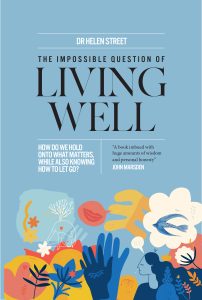
In the early 2000s, social scientist and internationally-renowned author Helen Street was working with educators in primary schools, researching the relationship between motivational styles, goal setting and mental health.
Read the latest print edition of School News HERE
What she found was disheartening.
“I observed a great desire to support young people’s social and emotional development, but a lack of knowledge about current research and practice,” explains Street. “A strong legacy remained from the failed self-esteem movement of the 1970s and early 1980s; supporting genuine interest and engagement had been confused with trying to make learning ‘fun’ and there was difficulty in discerning between healthy emotional expression and poor mental health.”
Teachers wanted solutions that could help students, but they were already overworked and overcommitted. They needed solutions that were practical and evidence-based, bridging the gap between psychology, academia and school-based education… but solutions that could be provided within the school curriculum.
“I firmly believe that the mental health crisis we are experiencing in our schools is directly related to failures in the education system to adequately meet the needs of those within it,” explains Street. “This is not to say that social media, excessive time spent online, and the continuing impact of Covid are not all very relevant and valid drivers of poor mental health. Rather I believe that the competitive, hierarchical, and controlling nature of education is a large part of the problem, and something we have the power to change.”
“In particular, I advocate for a shift in focus from individualised wellbeing programs, driven with extrinsic rewards, to considered systemic development in schools, built on a foundation of inclusion, agency and equity.” Helen Street
Contextual Wellbeing
Contextual Wellbeing, a framework developed by Street, is a relational understanding of wellbeing within a social context. Unlike individual wellbeing, which focuses on the self and how one feels physically, mentally and emotionally, contextual wellbeing is developed between people and between people and place.
“When we are connected to a healthy context, across all domains, we experience belonging, engagement and self-determination – this is contextual wellbeing,” explains Street.
“Contextual Wellbeing is a vital approach for schools to take in their pursuit of wellbeing support because it focuses on systemic development, and acknowledges the power and importance of all aspects of the school context in creating a community of wellbeing. As such, it is a wellbeing philosophy and a socially driven framework, rather than a specific program,” she adds.
“This is a real-world approach, rather than an additional subject on the timetable. It is about equity, about inclusion and about ensuring that every member of a school community has an opportunity to feel well and to act well.” Helen Street
The impossible question of living well
However, Street notes that while creating meaningful, authentic relationships is central to positive mental health and living well, creating those relationships can come with risks.
“Everything changes in life, all of the time,” she says. “Nothing lasts forever in some sort of magical happy-ever-after moment. This means that as much as change can be welcome, we also have to understand that all things are impermanent, and change can be undeniably hard.”
This is why it is essential that students are taught that not only is change inevitable, but that it can be embraced.
“One of the most fundamental truths of life is that ‘everything changes’,” says Street. “And I define resilience as our ability to understand, accept and navigate change,” she adds. “All relationships will ultimately change and be lost, and that means that having the courage to connect comes with the inevitability of facing adversity and grief. Thus, the impossible question of living well is ‘how do we learn to hold onto what matters, while also knowing how to let go?’”


Educators teaching change
In her new book, The Impossible Question of Living Well, Helen Street explains how we can teach students to be better equipped to handle change: to embrace precious moments and navigate tough times.
Living well, she explains, is:
1) knowing who you are at your very core, and finding the constancy in your ever-changing world;
2) paying attention to the values that drive you, rather than always measuring success by the goals that pull you
3) accepting the inevitability of change and seeing it as a positive as well as a tough thing
4) learning to hold trust in yourself as a social being who can ride the tides of change, if given the tools to do so.
“I think that people are over the idea of ‘hacks to happiness’, or a bullet point list of wellbeing tips,” Street says. “Living life well requires contemplation, time and careful consideration of all that ‘really matters’ to each of us.”
In support of her new book, Helen is offering a free webinar on understanding change as a pathway to building our capacity for resilience (May 20th at 4:30 AWST / 6:30 AEST).
School News readers can register via the website helenstreet.com







